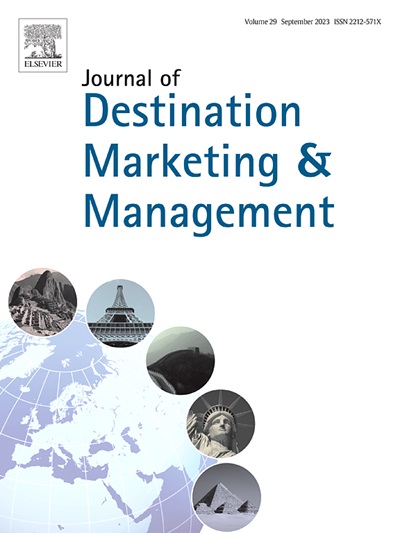Physical evidence, branding, and behavior intention: Differential policy in integrated resorts marketing
IF 8.9
2区 管理学
Q1 HOSPITALITY, LEISURE, SPORT & TOURISM
引用次数: 0
Abstract
This study explores and evaluates the physical evidence construct in integrated resort marketing. It contributes to the stimulus-organism-response (SOR) theory by introducing the concept of physical evidence and developing a novel framework in the context of integrated resorts. This conceptual framework enhances academic understanding of the relationship between physical evidence, branding, and the behavioral intention of tourists. The results indicate that physical evidence positively impacts brand image, brand experience, and impulsive gambling; moreover, the study reveals that both brand image and brand experience partially mediate the relationship between physical evidence and gambling behavior. In terms of practical implications for service organizations, this study suggests integrated resorts should prioritize the development of physical evidence as a distinctive marketing policy. By incorporating physical evidence into the customer brand strategy, integrated resorts can create long-term impacts on brand image and brand experience, ultimately influencing gambling behavior among tourists and visitors.
物证、品牌和行为意向:综合度假村营销中的差异化政策
本研究探讨并评估了综合度假村营销中的物证构建。它通过引入实物证据的概念,并在综合度假村的背景下建立一个新颖的框架,为刺激-组织-反应(SOR)理论做出了贡献。这一概念框架加深了学术界对实物证据、品牌塑造和游客行为意向之间关系的理解。研究结果表明,实物证据对品牌形象、品牌体验和冲动性赌博有积极影响;此外,研究还揭示了品牌形象和品牌体验对实物证据与赌博行为之间关系的部分中介作用。就对服务机构的实际影响而言,本研究建议综合度假村应优先发展实物证据,将其作为一项独特的营销政策。通过将实物证据纳入客户品牌战略,综合度假村可以对品牌形象和品牌体验产生长期影响,最终影响游客的赌博行为。
本文章由计算机程序翻译,如有差异,请以英文原文为准。
求助全文
约1分钟内获得全文
求助全文
来源期刊
CiteScore
18.60
自引率
3.60%
发文量
46
审稿时长
43 days
期刊介绍:
The Journal of Destination Marketing & Management (JDMM) is an international journal that focuses on the study of tourist destinations, specifically their marketing and management. It aims to provide a critical understanding of all aspects of destination marketing and management, considering their unique contexts in terms of policy, planning, economics, geography, and history. The journal seeks to develop a strong theoretical foundation in this field by incorporating knowledge from various disciplinary approaches. Additionally, JDMM aims to promote critical thinking and innovation in destination marketing and management, expand the boundaries of knowledge, and serve as a platform for international idea exchange.

 求助内容:
求助内容: 应助结果提醒方式:
应助结果提醒方式:


